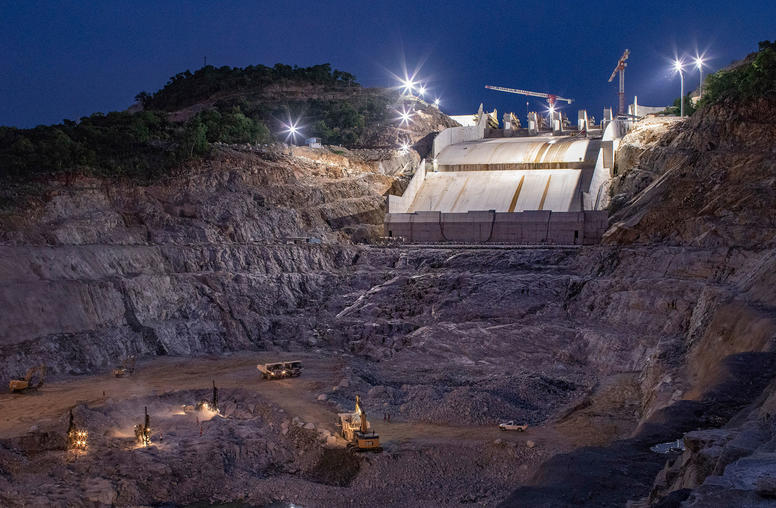 Environment
Environment
As climate change amplifies weather disasters and destabilizes food and water supplies, recent research has confirmed: Our planet’s warming is weakening already fragile states, increasing the risk of violent conflicts and sparking human displacement and migration on an unprecedented scale. USIP is working to understand how climate policy and peacebuilding can work together to ensure that we stay ahead of the climate curve and put affected communities on the path toward long-term peace and stability.
Featured Publications

A Delicate Balance: Promoting Nuclear Energy While Preventing Proliferation
As global energy demands intensify and the urgency of addressing climate shocks mounts, the role of nuclear energy has come to the forefront of discussions for governments, businesses and those concerned about sustainable development. Just last week, the Biden administration released a plan to triple U.S. nuclear capacity by 2050. While nuclear energy promises efficiency gains and significant emissions reductions, public opinion remains divided about the tradeoffs of increased investment, the safety risks and the implications for international security. This puts the U.S. at a crossroads as it tries to navigate its role in a world with new demands for nuclear energy and heightened risks of conflict between nuclear-armed states. Such risks were highlighted this week when Russia lowered its nuclear threshold in response to new U.S. authorizations for Ukraine to use long-range weapons.

Why Early Warnings Are Critical for Climate Action and Conflict Prevention
Amid a changing climate, understanding the interplay between extreme environmental events and conflict is only growing more important. Droughts, floods and other natural disasters can exacerbate socioeconomic vulnerabilities, highlight weaknesses in governance, disrupt livelihoods and increase perceptions of marginalization.

Back to the Future? Kazakhstan’s Nuclear Choice
Although Kazakhstan denuclearized over three decades ago when it split from the Soviet Union, the Central Asian nation held a referendum on October 6 over whether it should build a nuclear power plant. With 73% voting yes, the referendum could reverberate beyond Kazakhstan and the Central Asia region. Safe nuclear power would be a boon for Kazakhstan, decreasing its reliance on fossil fuels while increasing economic resilience and helping it to address its immense climate change challenges. There are also important U.S. interests at stake here. The U.S. and Western allies should constructively engage with Kazakhstan, including helping to build a new reactor, to avoid Russian or Chinese control of Kazakhstan’s new nuclear energy sector and its valuable uranium resources.
Current Projects

Critical Minerals in Africa
Often throughout Africa’s history, natural resource exploitation has brought devastating consequences. However, it’s clear that Africa’s critical minerals will be developed regardless of the risks. The question is: How will critical minerals be developed and to whose benefit?

Local Solutions for Tunisia’s Environmental Crises
In partnership with USAID, USIP is embarking on an innovative, experimental project that will support Tunisia’s local governments and civil society as they co-develop and implement solutions to environmental governance challenges that are exacerbating fragility and heighten ing exposure to climate shocks.

Peace and Security Issues in Africa-China Economic Relations
Much of the research that has been conducted on the impact of China’s economic engagement with Africa has focused on their economic exchanges and security engagements in isolation of one another. But few have sought to understand the interconnections between these themes. These interconnections matter, as some Chinese firms are responsible for environmental degradation, population displacement, corruption and illegal extraction activities — all of which are factors that can drive conflict.